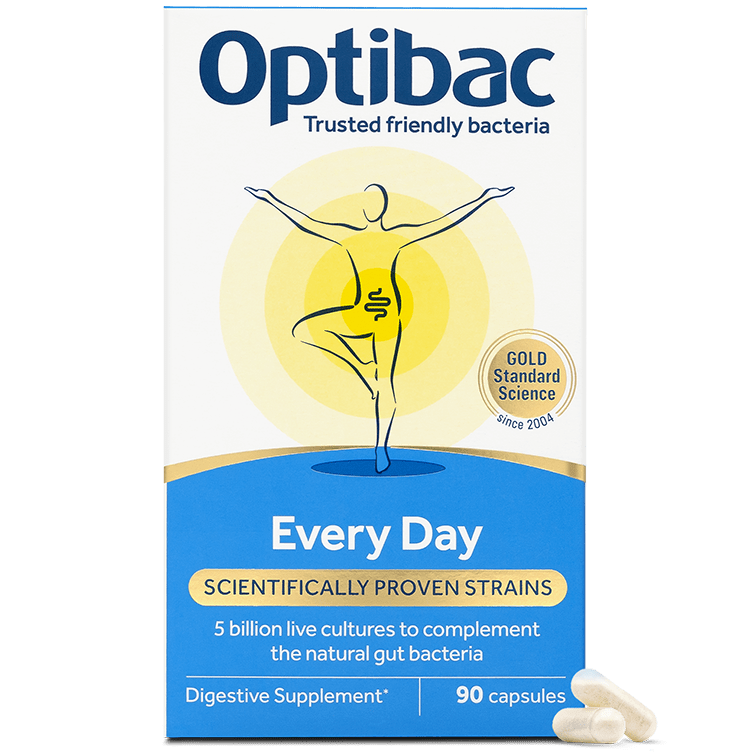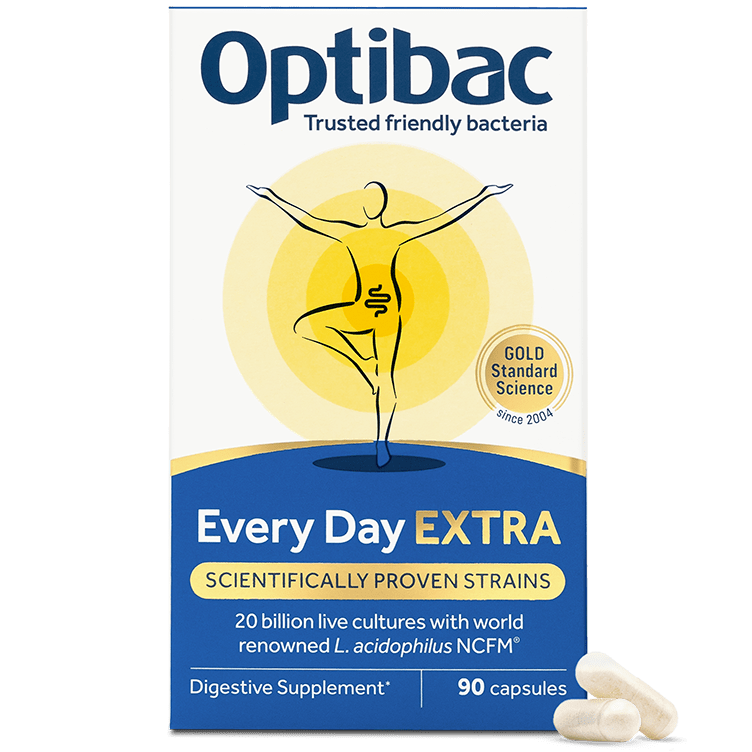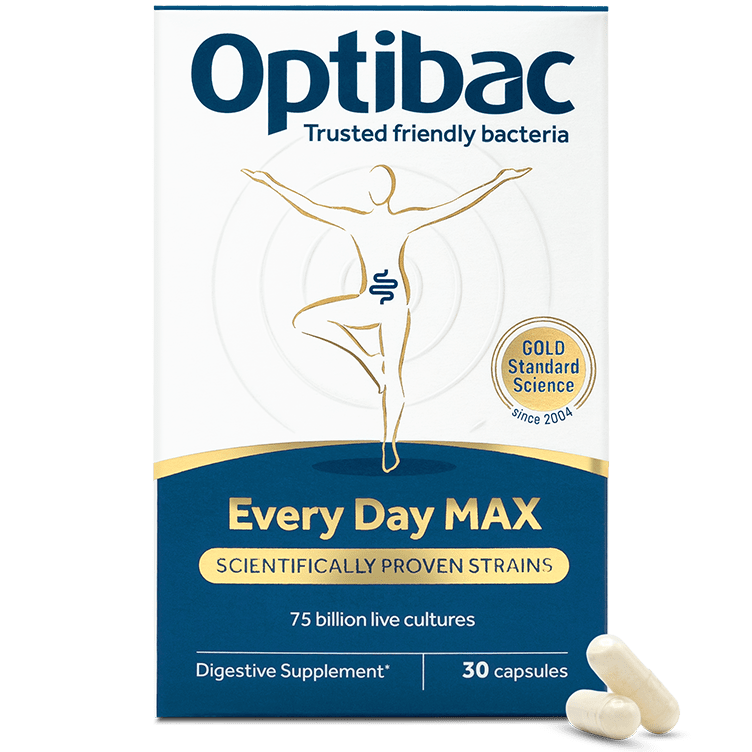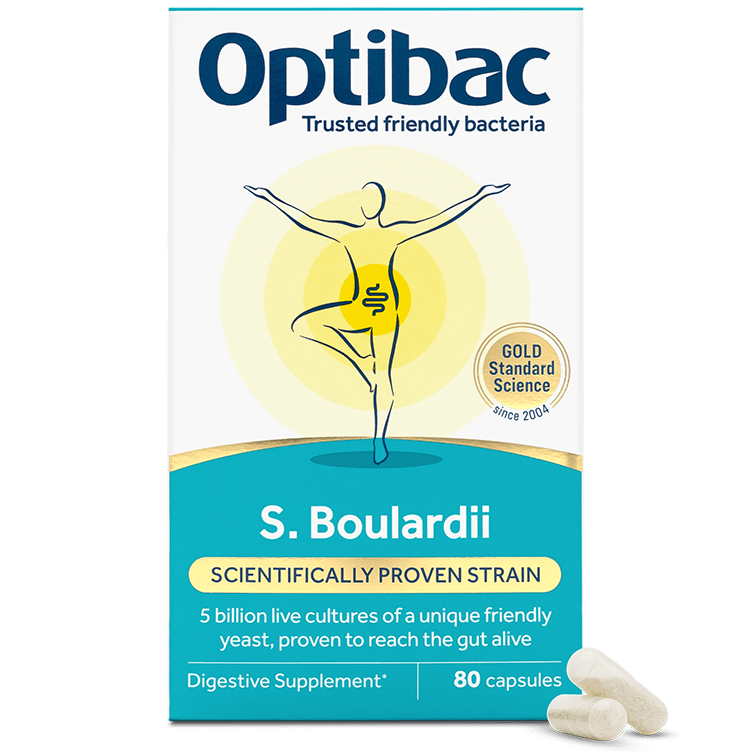
You're away from FREE US delivery Free US delivery (applied at checkout) on orders over $60.00
You have qualified for Free US delivery
Probiotics for every day
Support optimal digestive health by choosing a high quality, multi-strain daily probiotic supplement. All Optibac supplements are expertly formulated with extensively researched strains.
Probiotics for daily use
All products-
![Optibac Probiotics Every Day - Award images]() Bestseller
Bestseller -
![Optibac Probiotics Every Day EXTRA | high strength probiotic | 90 capsules]() Bestseller
Bestseller -
![Optibac Probiotics Every Day MAX - maximum strength probiotics]()
-
![Optibac Probiotics Saccharomyces boulardii | pure saccharomyces boulardii probiotic supplement]() Bestseller
Bestseller
Our daily probiotics
We have a whole range of probiotics, perfect to be taken as part of your morning health and wellness routine.
They each have unique benefits and suitability so keep reading to find out which one could be best for you:
Every Day is our 'starter' product, ideal for anyone who is new to probiotics and wants a cost-effective supplement. It's a combination of highly researched live cultures and prebiotic FOS proven to increase your body’s natural gut bacteria. Every Day is great for all-round digestive health and wellbeing.
Every Day EXTRA is our 'next level up' probiotic supplement. It's multi strain and high strength! One thing that sets it apart from Every Day is that is free from prebiotic FOS, making it more suitable for those with IBS. It is perfect for all-round gut support, especially occasional bloating.
Every Day MAX, as you might expect from the name, is our high-strength daily probiotic for ultimate digestive health. Each capsule contains 75 billion live cultures, all of which are scientifically proven to reach the gut alive. Like Every Day EXTRA, Every Day MAX includes L. acidophilus NCFM®, the most researched acidophilus strain in the world.
Saccharomyces Boulardii is slightly different - it's a friendly yeast, used around the world for 50 years. This is one of our best sellers because Saccharomyces Boulardii has been clinically trialled and shown to support gut health, particularly in those with occasional diarrhoea.
Probiotics: your questions answered
Should I take probiotics every day?
Yes, it is perfectly safe and generally advisable to take a probiotic supplement every day. Good bacteria only colonise in the gut for a few weeks and research(1,2,3) suggests that taking regular digestive supplements helps to complement the gut microbiome.
What strength of probiotics is best?
With probiotics, ‘more’ is not always ‘better’, though some people do better on high-strength probiotic supplements. It is still important to choose high strength supplements with highly researched strains featured in multiple gold standard clinical trials, where the research is relevant to your needs. High strength supplements like Optibac Every Day EXTRA (4) contain the same number of billions used in supporting clinical trials.
Can I take Saccharomyces boulardii alongside other probiotic supplements?
Yes! In fact, it’s highly recommended to take Saccharomyces boulardii alongside other probiotic supplement. S. boulardii probiotic yeasts do not colonize for long in the gut but they harmonise well with good bacteria. They displace bad bacteria and unfriendly yeasts(5) and create a healthy gut environment in which good bacteria can flourish (6). For this reason, most people take them in combination.
Not sure which supplement is best for you?
Contact our expert team of Nutritional Advisors for advice on product selection
References
- Mimura, T. et al. (2004). 'Once daily high dose probiotic therapy (VSL#3) for maintaining remission in recurrent or refractory pouchitis'. Gut, 53(1): 108-114
- Jacobsen et al., 1999. 'Screening of probiotic activities of 47 strains of Lactobacillus spp. by in vitro techniques and evaluation of the colonisation ability of 5 selected strains in humans'. Applied and Environmental Microbiology; 65 (11): 4949-4956
- Nagulesapillai, V., Belvis, J., Tompkins, T. and Girard, S.-A. (2017), Detection and Quantification of Probiotic Strains in Clinical Fecal Samples of Healthy Adults by Real-time PCR. The FASEB Journal, 31: lb207-lb207. https://doi.org/10.1096/fasebj.31.1_supplement.lb207
- Sanders ME, Klaenhammer TR. (2001) Invited review. The scientific basis of Lactobacillus acidophilus NCFM functionality as a probiotic. J Dairy Sci. 84(2):319-331. doi:10.3168/jds.S0022-0302(01)74481-5
- Murzyn et al., (2010), ‘Capric Acid Secreted by S. boulardii Inhibits C. Albicans’. Plos One, 5(8):
- Qamar et al., (2001), ‘Saccharomyces boulardii Stimulates Intestinal Immunoglobulin A Immune Response to Clostridium difficile Toxin A in Mice’. Infect. Immun., 69(4):2762–2765.


